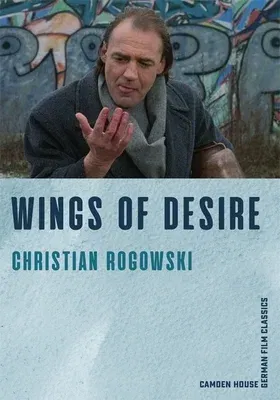Christian Rogowski
(Author)Wings of DesirePaperback, 10 September 2019

Qty
1
Turbo
Ships in 2 - 3 days
Only 2 left
Free Delivery
Cash on Delivery
15 Days
Free Returns
Secure Checkout

Part of Series
Camden House German Film Classics
Print Length
96 pages
Language
English
Publisher
Camden House (NY)
Date Published
10 Sep 2019
ISBN-10
1640140379
ISBN-13
9781640140370
Description
Product Details
Author:
Book Format:
Paperback
Country of Origin:
US
Date Published:
10 September 2019
Dimensions:
18.8 x
13.21 x
0.76 cm
Genre:
Germany
ISBN-10:
1640140379
ISBN-13:
9781640140370
Language:
English
Location:
Rochester
Pages:
96
Publisher:
Weight:
181.44 gm